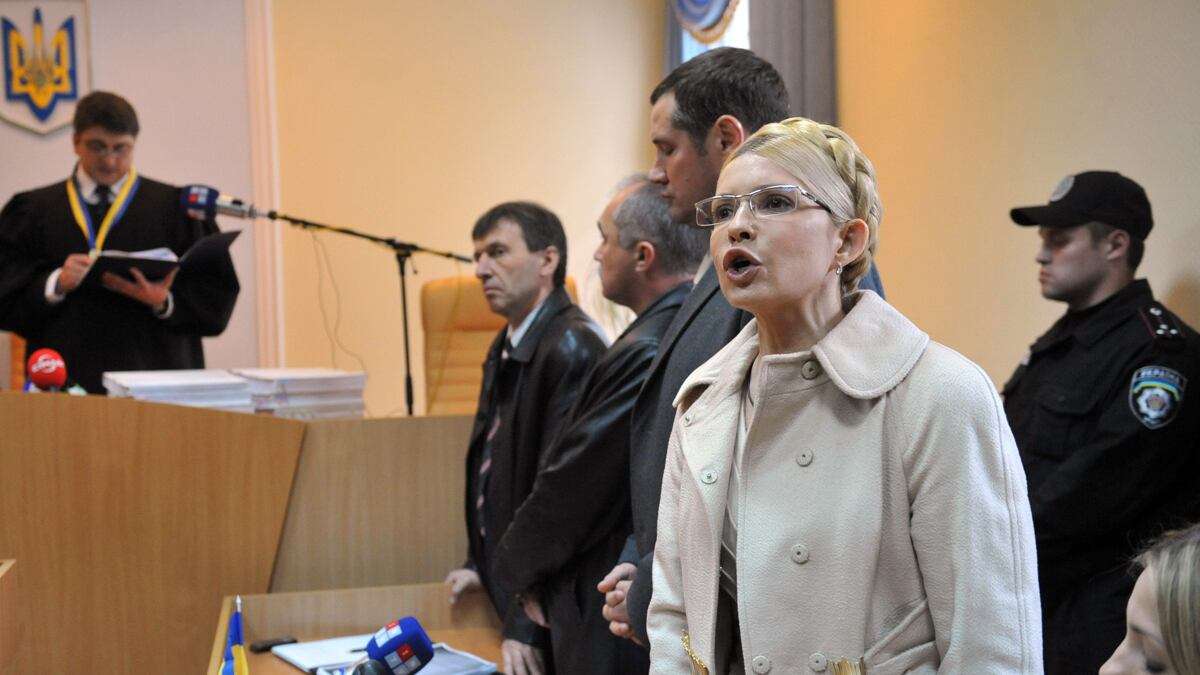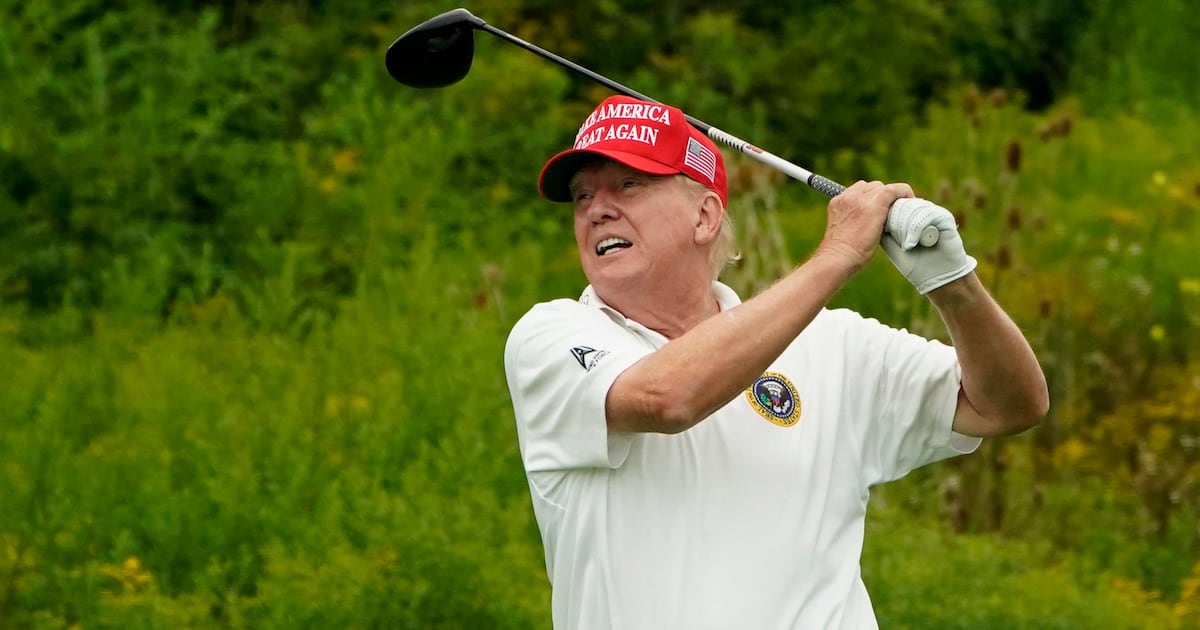Yulia Tymoshenko made her name as the braided goddess of Ukraine’s pro-democracy Orange Revolution in 2004. Then she urged crowds to overturn a fixed presidential election as the first step toward making Ukraine a free European nation. But on Tuesday the wheel of her fortunes—and Ukraine’s—came full circle. Viktor Yanukovych, whose falsified victory in the 2004 election was overturned by Tymoshenko and the Orange Revolutionaries, is now the legitimate president of Ukraine after a narrow win last year. And Tymoshenko has just been sentenced to seven years in jail for abuse of office when she was prime minister in 2009—charges she says are Yanukovych’s political payback for the Orange Revolution. As for Ukraine, a proposed deal with the European Union on closer economic and political ties now hangs in the balance after Brussels’ strong disapproval of Tymoshenko’s conviction.
One thing hasn’t changed about Tymoshenko, though: her steely will. As the judge announced a seven-year jail sentence, plus a $180 million fine and confiscation of all her property, not a muscle moved on Tymoshenko’s face. She turned to comfort her daughter and husband, who sat by her side, then stood up to denounce the verdict as a return to the repressions of the Stalin era. “Today the regime demonstrated that there is no justice left in our country,” she said, speaking in a booming voice over the judge’s monotone recitation of the verdict. “We have to fight, and the authoritarian regime will be broken. I am strong, and no accusations are going to stop me.”
It seems that Tymoshenko is going to be as much trouble to Yanukovych in jail as she was outside it. Immediate reactions to Tymoshenko’s conviction showed an upswell of support for the Orange Goddess, even among former enemies. Yanukovych has committed “political hara-kiri,” says WBC world heavyweight champion Vitaly Klitschko, who is also one of the leaders of the Udar (or "Punch") opposition party. “This unprecedentedly hostile verdict is a sign that a dictatorship has taken power in Ukraine.” Nor is the case going to go away: Tymoshenko’s lawyer Yuri Sukhov says his client plans to appeal at every higher court in Ukraine and then to the European Court of Human Rights. As Tymoshenko said last month in an email exchange with Newsweek from her iPad in the courtroom, “I will oppose dictatorship no matter whether I am outside or inside prison. I have no right to let my millions of my voters down.”

It’s not just Yanukovych who is going to face problems with the verdict—Ukraine itself will. “This case is getting in the way of Ukraine’s integration with Europe,” admitted Yanukovych Tuesday. Specifically, EU foreign-policy chief Catherine Ashton has warned that failure to give Tymoshenko a fair trial would have "profound implications" for a landmark association agreement with the EU that was a centerpiece of Yanukovych’s presidency. If talks with the EU collapse, Ukraine will have little choice but to move closer to Russia, whose prime minister (and virtual president-elect), Vladimir Putin, has in recent weeks been proposing a “Eurasian Union” as a post-Soviet mirror image of the EU. So far Ukraine has resisted Russian calls to join a customs union with Kazakhstan and Belarus, preferring the prospect of free trade and labor movement with Europe. That could all be jeopardized by the Tymoshenko conviction.
More, the case—and the trials of 12 other Tymoshenko supporters over the past year—marks a dangerous lurch toward Russian-style abuse of the courts for political ends. Sukhov says he has never seen such “wild nonsense” in any court proceedings in nearly 20 years of practice. The defense was denied the right to make any oral statements, and could only make statements in writing, he says. Members of Tymoshenko’s party in the Rada, Ukraine’s Parliament, were also denied entry into the courtroom in Kiev’s Pechersk district. Such practices, and worse, are standard practice in Putin’s Russia. But it’s a major setback for Ukraine—and for Europe—if Yanukovych follows in the footsteps of his authoritarian northern neighbor.






